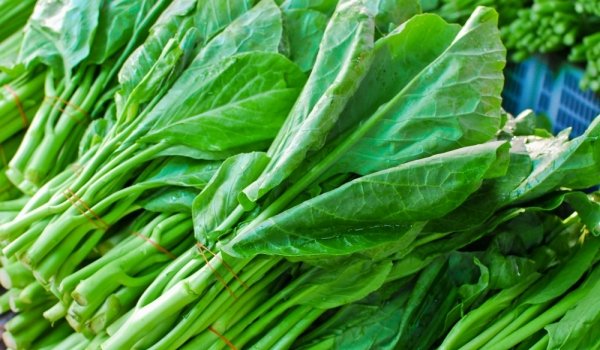Once, our predecessors were strictly keeping to the fastings in the Orthodox calendar. They believed that the fasting would make them meeker and better people and would help them get rid of their sins. During this period, they used to put on their table small quantities of food so they could overcome the hunger. Their food was very simple- they ate nettle and dock which they picked straight form the meadows. Their casserole mainly consisted of beans or lentils. During the days of the fastings, they excluded all animal foods from their menu including meat, milk products and eggs. Then, the variety of the meatless dishes was brought down to the imagination of the housewife who had to feed the household with sorrel soup or mushroom soup for example. Fasting back in the past did not require any special efforts.

© Photo: archive
There were not so many temptations as compared to the present days. Now when people go inside a regular small shop, they will meet all kinds of food temptations such as chocolates, ice creams, cakes, deserts and many other delights. Let alone the cheese pastries and the pizzas sold on every corner in Bulgaria nowadays. Such shops did not exist in the past in the small Bulgarian towns and villages. However, there are many people who keep to the fasts even at present. There are many young people among them who have decided to strengthen their faith through the fast. The skeptical people would probably say that they fast, because they view the forbearance from consumption of some foods as some kind of a diet. However, the number of such people is not so big, as compared to the ones who fast in accordance with the religious traditions.
Thanks to this reviving Orthodox tradition, some of the most favorite meals of the grannies of the past are now coming back to life. One such meal is for example the snail stew (as all mollusca meals are allowed during the fasts). People can find snails in abundance in the spring, especially if it rains a lot. If you do not feel pity for these creatures, you can make them with spring onions, garlic, tomatoes, parsley and mint. The same stew can be made of the edible boletus mushroom or other mushrooms which grow in May, without having to kill the poor snails. This delicious spring meal goes extremely well with fresh sorrel soup. It grows well even in the urban environment, but there is no guarantee about the quality of the one picked in the Bulgarian big cities. This is why you should better go to the closest mountain or field meadow and pick a clean one form there. For the making of the soup itself, you will need couple carrots, depending on the quantity of the sorrel added, two sticks of celery, fresh garlic, spring onions, some parsley and trahana (a mixture of flour and dried grinded vegetables). And here you are a healthy and delicious meal. For a desert, you can make a strudel (layered sweet pastry filled with fruits) If you fell like eating a cheese pastry, you can chop some sauerkraut and braise it with some rice and spices and herbs and you will have a wonderful filling for a cabbage pastry. If the sour cabbage is over, you can boil some potatoes and grate them, then mix them with some olive oil, spring onions and other herbs and spread this mixture over the filo pastry. Pour some water and oil over it and stick it straight in the oven.

© Photo: archive
Just make sure you don’t overeat, because people eat during the fasts just as much as to avoid the feeling of hunger. It is not recommended to fall into culinary dishes, although they are meatless during this period, because it leads to greediness which is one of the seven deadly sins!
When spring comes, we start to feel sleepier, get tired quicker and become absent-minded. According to the experts, the toxins accumulated in our bodies during the winter which suck out our energy are the reason for these bad feelings. This is why, if you want to get rid of these toxins, you should forget about meat and animal food for some time. You will be surprised with the positive changes in your mood as well as in your attitude and communication with the people.
English version: Kostadin Atanasov
On November 24, the Bulgarian Orthodox Church honors St. Catherine (Sveta Ekaterina in Bulgarian) , who was one of the most educated women of her time. She lived in the late 3rd and early 4th centuries and came from a noble family in Alexandria...
The Patriarchal Cathedral of St Alexander Nevsky is celebrating its temple feast today. The cathedral, a symbol of the Bulgarian capital, was built "in gratitude to the Russian people for the liberation of Bulgaria from Ottoman rule in 1878". Who..
On November 22 and 23, the Bulgarian Orthodox Church will solemnly celebrate the 100th anniversary of the consecration of the Patriarchal Cathedral "St. Alexander Nevsky" . For a century the cathedral has been "a witness to all the hopes and..
At sunset on December 25, the Jewish community begins to celebrate Hanukkah. The holiday begins on the 25th day of the Jewish month of Kislev in the..
The Bulgarian Orthodox Church celebrates Christmas with solemn services. The festive services began on Christmas Eve, when the church held a solemn..
On the third day of Christmas, December 27, the Bulgarian Orthodox Church commemorates the memory of Saint Stephen, the first Christian martyr. His name..

+359 2 9336 661
